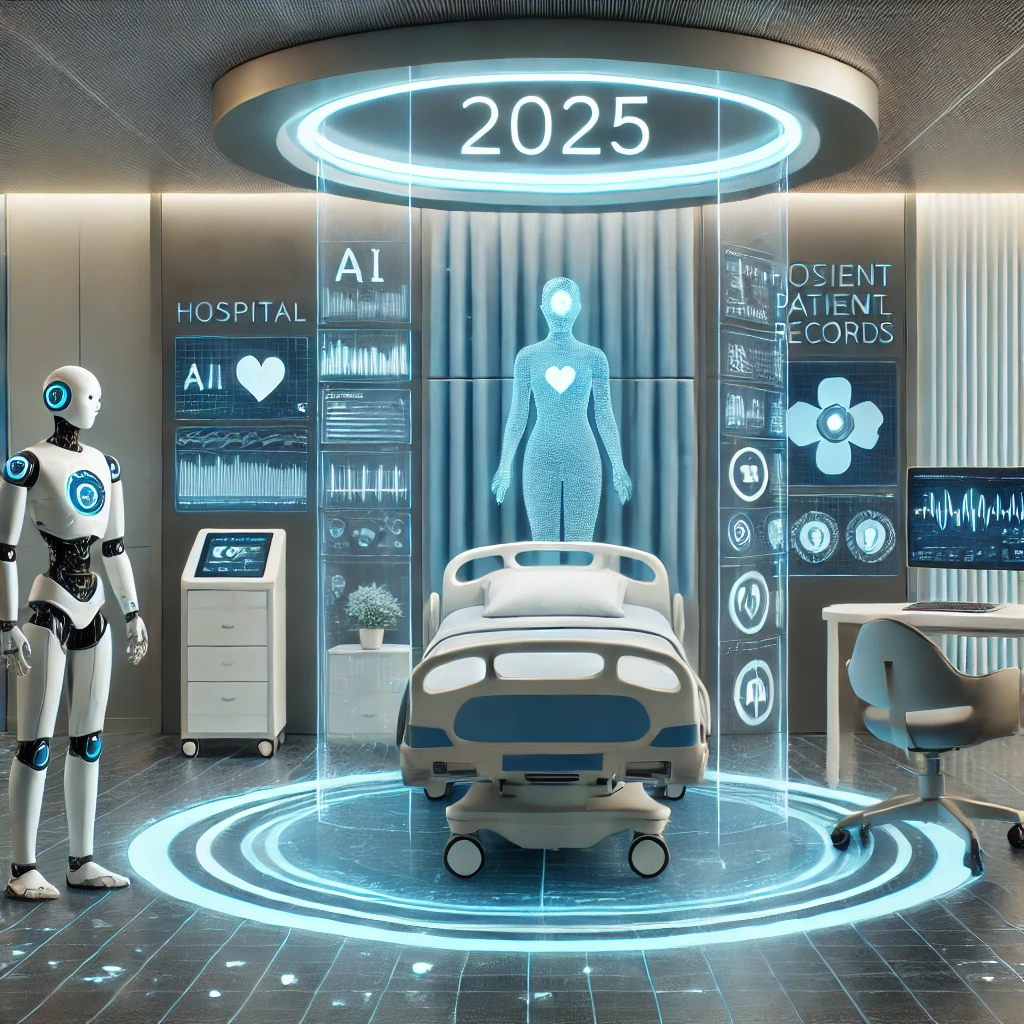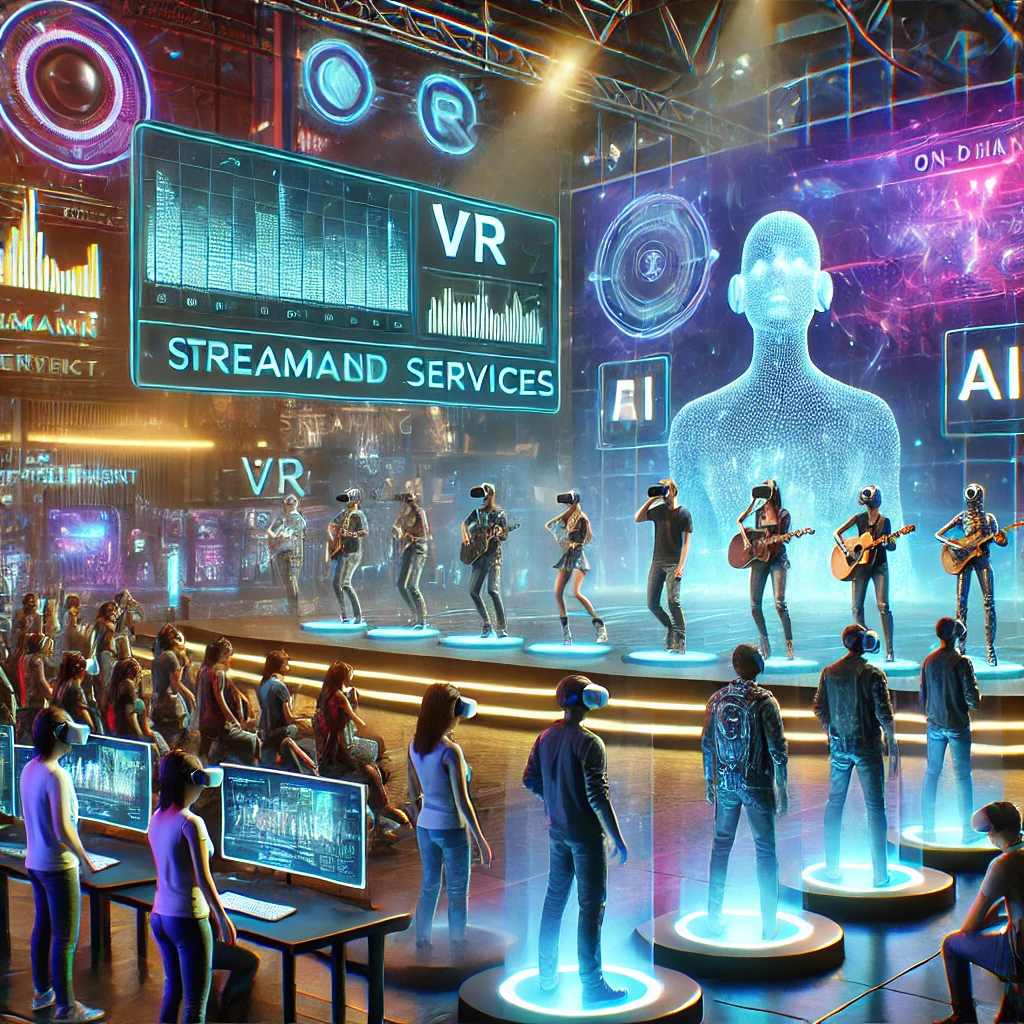The world of healthcare has undergone a massive transformation, driven by cutting-edge technology, artificial intelligence, and robotics. In 2025, hospitals are no longer just places for treatment but futuristic hubs where innovation meets patient care. Imagine stepping into a healthcare facility where AI-powered diagnostics, robotic assistants, and holographic patient records seamlessly work together to provide the best medical experience. This is the reality of modern hospitals, revolutionizing the way patients receive treatment.
A Futuristic Hospital: Where Innovation Meets Healthcare
As you enter a state-of-the-art hospital in 2025, the first thing that catches your eye is the sleek, modern design. The facility is designed for efficiency, with digital signboards, automated check-in kiosks, and voice-activated navigation systems guiding patients to their destinations. Gone are the days of long queues and paperwork; everything is digitized, making hospital visits faster and more convenient.
The waiting area is nothing like traditional hospital lobbies. Instead of stressed-out patients, you find comfortable seating equipped with virtual reality (VR) headsets that provide relaxation therapy. AI-powered chatbots assist visitors by answering queries, scheduling appointments, and directing them to the right departments. The atmosphere is calm and welcoming, designed to reduce patient anxiety and improve overall well-being.
Advanced AI-Powered Diagnostics
One of the biggest breakthroughs in modern healthcare is artificial intelligence. In 2025, AI plays a crucial role in diagnosing and treating diseases with remarkable accuracy. Upon arrival, patients undergo AI-driven health screenings using non-invasive devices. These machines analyze vital signs, blood samples, and medical history within seconds, providing doctors with detailed insights into the patient’s condition.
AI-powered imaging systems have significantly improved diagnostic accuracy. High-resolution MRI and CT scans are analyzed by deep-learning algorithms, detecting diseases like cancer, heart conditions, and neurological disorders at an early stage. These intelligent systems can identify abnormalities that might be missed by the human eye, ensuring patients receive timely treatment.
Robotic Assistants in Healthcare
Walking through the hospital corridors, you notice robotic assistants moving swiftly, performing various tasks. These robots are designed to assist doctors and nurses, reducing their workload and improving efficiency.
- Surgical Robots: Advanced robotic surgical systems assist in performing complex procedures with precision. Surgeons operate robotic arms using AI-powered interfaces, allowing for minimally invasive surgeries, faster recovery times, and reduced complications.
- Medical Supply Drones: Tiny autonomous drones transport medical supplies, medications, and lab samples across different hospital departments, eliminating delays and ensuring patients receive timely care.
- AI-Powered Nursing Bots: These humanoid robots help with patient care by monitoring vitals, administering medication, and providing companionship to elderly or isolated patients. They are equipped with voice recognition and can respond to patient inquiries, offering comfort and assistance when needed.
Holographic Patient Records and Virtual Consultations
Traditional paper-based medical records are now a thing of the past. In this futuristic hospital, patient records are stored in a secure digital cloud, accessible via holographic displays. Doctors can access real-time medical data, including past diagnoses, genetic information, and treatment history, with just a wave of their hand.
Virtual consultations have also become an essential part of healthcare. Patients can connect with specialists from around the world through high-resolution holographic video calls. Whether it’s a second opinion from a top neurologist in another country or post-surgery follow-ups, telemedicine ensures that expert care is always within reach.
Wearable Health Tech and Personalized Treatment Plans
The integration of wearable technology in healthcare has allowed for more proactive and preventive care. Patients wear smart health monitors that continuously track their vital signs, including heart rate, blood pressure, glucose levels, and oxygen saturation. These devices sync with the hospital’s AI system, alerting doctors to any abnormalities before they become serious.
- Personalized Medicine: Treatments are now tailored to individual patients based on genetic data and AI-driven analysis. This ensures that medications and therapies are more effective, reducing the risk of side effects.
- Automated Medication Dispensers: Patients receive medications through smart dispensing units that ensure accurate dosages, eliminating human errors in prescriptions.
Smart Patient Rooms for Enhanced Comfort
Hospital rooms in 2025 are designed with both comfort and technology in mind. Smart hospital beds adjust automatically to the patient’s position for maximum comfort. The lighting, temperature, and even entertainment options can be controlled via voice commands or a mobile app.
AI-powered virtual assistants provide round-the-clock support, reminding patients to take their medication, tracking recovery progress, and even engaging in conversations to improve mental well-being. These advancements ensure that hospital stays are less stressful and more patient-friendly.
The Future of Healthcare: A Fully Integrated System
The hospital of 2025 is not just about technology; it is about creating a fully integrated healthcare system that prioritizes efficiency, accuracy, and patient-centered care. By combining AI, robotics, telemedicine, and personalized treatments, healthcare providers can offer faster, more effective, and more accessible medical services.
As we look forward to the next decade, the potential for further innovation in healthcare is limitless. With continuous advancements in artificial intelligence, biotechnology, and digital health, hospitals will continue to evolve, ensuring that the future of medicine is smarter, safer, and more patient-friendly than ever before.






